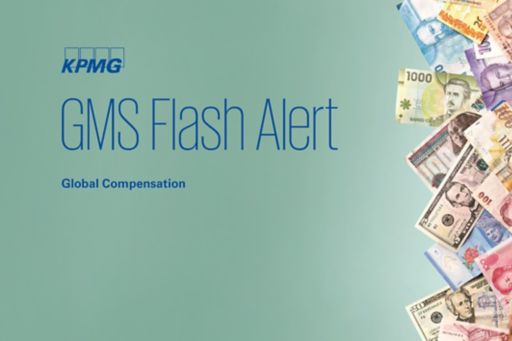India – Supreme Court and Provident Fund Organization Actions on Contributions
India – Supreme Court and Provident Fund Organization A
This report discusses a government directive restricting field officer inspections of employer contributions to the Employees’ Provident Fund.
Highlights

SUBSCRIBE
To subscribe to GMS Flash Alert, fill out the subscription form.
Recently the Supreme Court of India dismissed a review petition to clarify the court’s decision expanding the definition of basic wages for purposes of calculating employer contributions to the Provident Fund, and on the same day the Employees’ Provident Fund Organisation (EPFO) restricted field officer inspections of employer contributions.
WHY THIS MATTERS
These recent actions by the Supreme Court and the EPFO may have significant impact on how employers calculate Provident Fund contributions. Thus, employers should review their policies and documentation in relation to employee compensation to make sure they are complying with the regulations under the Provident Fund law.
Background
Multiple actions before the Supreme Court of India had raised a common question of whether certain allowances (such as travel allowance, canteen allowance, special allowance, management allowance and conveyance allowance) paid by an employer to its employees would fall within the category of ”basic wages” for purposes of computing contributions to the Provident Fund (PF) under the Employees’ Provident Funds and Miscellaneous Provisions Act, 1952. In a recent action, the Supreme Court in a 28 February 2019 order,1 held that:
- If any amount is to be excluded from basic wages, it must be shown that the employee’s entitlement to receive the extra amount was not related to the normal work the employee was otherwise required to perform.
- No material had been offered by the employers to demonstrate that the allowances in question being paid to employees were either variable or were linked to any incentive for production resulting in greater output by an employee, and that the allowances in question were not paid to all employees in a particular category or were being paid especially to those who avail the opportunity.2
Review Petition
One of the parties to that action had filed a review petition on 29 March 2019 against the Supreme Court’s 28 February 2019 decision.
The Supreme Court has dismissed this review petition on 28 August 2019, holding that it did not find any justifiable reason to entertain it.
Recent PF Circular
EPFO has issued a circular3 directing its field officers not to pursue any notices that have been issued to employers without any prima facie evidence of arbitrary bifurcation of wages by employers with an intention to avoid PF liability.
The circular states that several PF offices had issued a notice to the establishments quoting the Supreme Court ruling to ascertain the wage structure to find out if any allowances that were part of basic wages have been omitted for the purpose of compliance.
The circular states that in all the cases where notices have been issued without any prima facie evidence of arbitrary bifurcation of wages with intention to avoid EPF liability, such notices should not be pursued further.
FOOTNOTES
1 Regional Provident Fund Commissioner (II) West Bengal vs Vivekananda Vidyamandir and Others, Civil Appeal No. 6221 of 2011.
2 For prior coverage, see Flash News dated 1 March 2019. http://www.in.kpmg.com/TaxFlashNews-INT/KPMG-Flash-News-Vivekananda-Vidyamandir-And-Others-1.pdf
3 EPFO Circular – Notice to establishments for inspection in the wake of Supreme Court judgement on PF-able allowances – Circular No. C-1/1(33)2019/Vivekananda Vidyamandir/717 dated 28 August 2019.
The information contained in this newsletter was submitted by the KPMG International member firm in India.
© 2024 KPMG Assurance and Consulting Services LLP, an Indian Limited Liability Partnership and a member firm of the KPMG global organization of independent member firms affiliated with KPMG International Limited, a private English company limited by guarantee. All rights reserved.
For more detail about the structure of the KPMG global organization please visit https://kpmg.com/governance.
GMS Flash Alert is a Global Mobility Services publication of the KPMG LLP Washington National Tax practice. The KPMG name and logo are trademarks used under license by the independent member firms of the KPMG global organization. KPMG International Limited is a private English company limited by guarantee and does not provide services to clients. No member firm has any authority to obligate or bind KPMG International or any other member firm vis-à-vis third parties, nor does KPMG International have any such authority to obligate or bind any member firm. The information contained herein is of a general nature and is not intended to address the circumstances of any particular individual or entity. Although we endeavor to provide accurate and timely information, there can be no guarantee that such information is accurate as of the date it is received or that it will continue to be accurate in the future. No one should act on such information without appropriate professional advice after a thorough examination of the particular situation.
